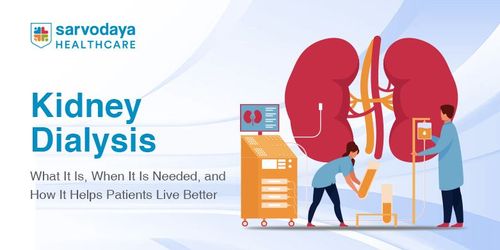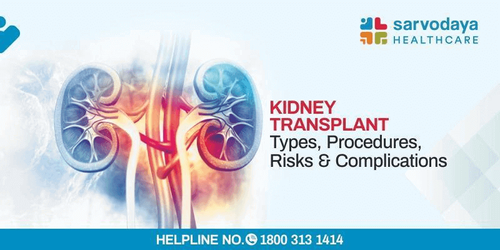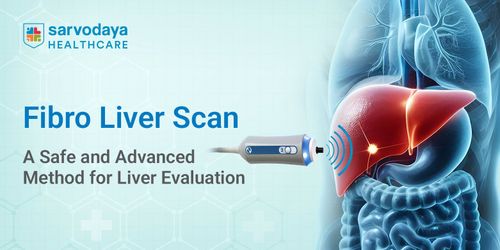Kidney health plays a vital role in ensuring that your body stays balanced, energetic and free of toxin build-up. When the kidneys are not functioning as they should, waste accumulates in the bloodstream, leading to fatigue, swelling and multiple long-term health complications.
In this blog, you learn about the purpose of a kidney function test, the key parameters involved, how the test is performed and why early detection makes treatment more effective.
Exploring Kidney Function Tests
A kidney function test is a specialised diagnostic assessment designed to evaluate how efficiently your kidneys filter blood, remove waste and maintain electrolyte balance.
A standard KFT includes the following kidney function test name components:
- Serum Creatinine
- Blood Urea Nitrogen
- Uric Acid
- Estimated Glomerular Filtration Rate (eGFR)
- Sodium, potassium and chloride levels
Importance of a Kidney Function Test
The importance of a kidney function test lies in its ability to identify concerns at an early stage.
A kidney function test helps in the following ways:
- Identifying early kidney damage before symptoms appear
- Monitoring long-term kidney conditions
- Evaluating the effects of medication on kidney health
- Guiding treatment decisions and lifestyle changes
- Assessing kidney status before surgery or medical procedures
Timely assessment through a kidney function test gives you a clear understanding of your kidney health and allows doctors to recommend meaningful steps for protection.
When a Kidney Function Test Is Recommended
The body gives several early signals when the kidneys begin to struggle, but these are often overlooked.
Here are key situations where doctors strongly recommend screening:
- Persistent swelling or water retention
- Long-standing high blood pressure or diabetes
- Ongoing use of painkillers or strong medication
- Family history of kidney problems
- Changes in urine output or colour
- Recurrent urinary tract infections
If you experience any of these symptoms or fall into a high-risk group, visiting the best nephrologist in Delhi NCR ensures a professional evaluation and personalised guidance.
Purpose of a Kidney Function Test
Doctors recommend a kidney function test for multiple reasons.
Here are the key purposes explained in a clear structure:
- Detecting early signs of kidney disease before symptoms become noticeable
- Monitoring chronic kidney conditions and treatment progress
- Evaluating the kidney response to long-term medications
- Ensuring kidney fitness before major medical procedures
- Understanding electrolyte balance for overall well-being
Kidney Function Test Procedure
A blood test for kidney function is a simple, quick and minimally invasive procedure.
To help you understand the process clearly, here is a brief outline of how a kidney function test is performed:
- A healthcare professional cleans the area and draws a small sample of blood.
- The sample is labelled and transported to a diagnostic laboratory.
- Machines analyse levels of creatinine, urea, electrolytes and other indicators.
- A detailed kidney function test report is generated within a few hours.
If your doctor suspects any kidney-related concerns, they may recommend repeating the kidney function test at regular intervals for accurate monitoring.
Kidney Function Test Normal Range
Each parameter in the kidney function test report provides essential insights into filtration efficiency and chemical balance.
Here is an overview of key values included within the kidney function test normal range:
- Serum Creatinine: 0.7 to 1.2 mg/dL for men and 0.5 to 1.0 mg/dL for women
- Blood Urea Nitrogen: 7 to 20 mg/dL
- Uric Acid: 3.4 to 7.0 mg/dL for men and 2.4 to 6.0 mg/dL for women
- eGFR: Above 90 indicates normal kidney function
- Sodium: 135 to 145 mEq/L
- Potassium: 3.5 to 5.0 mEq/L
- Chloride: 96 to 106 mEq/L
Kidney Function Test Cost in India
Many centres offer packages that combine multiple parameters, helping patients receive a complete analysis at an affordable kidney function test price.
Here are the main factors that influence the kidney function test cost:
- The type and number of parameters included in the panel
- Whether the test is part of a routine health check
- Quality of laboratory technology and accreditation
- Location and reputation of the healthcare provider
When performed at a reputable facility such as the best hospital for kidneys in Delhi NCR, patients benefit from precise reporting, advanced diagnostic tools and specialist interpretation.
When to Consult a Kidney Specialist
Kidney issues can progress silently, and early assessment by the best nephrologist in Faridabad ensures you receive an accurate diagnosis and timely guidance.
To help you recognise when a specialist consultation is required, here are the situations that typically need expert attention:
- Consistently abnormal values in your test for kidney function
- Rising creatinine or falling eGFR levels
- Persistent swelling in the legs, face or around the eyes
- High blood pressure that remains uncontrolled
- Frequent urinary infections or difficulty urinating
- Long-term health conditions such as diabetes or heart disease
Conclusion
Regular monitoring through a kidney function test plays an essential role in protecting long-term kidney health. Early testing helps detect concerns before symptoms become severe, guides timely treatment and supports better outcomes.
Sarvodaya Hospital, Faridabad, provides comprehensive diagnostic facilities and expert nephrology care, ensuring accurate interpretation of your kidney function test report along with personalised treatment plans. With advanced technology, experienced specialists and a focus on early detection, the hospital supports both preventive consultation and complete renal care. This approach helps reduce complications and strengthens long-term kidney health through timely intervention and guided lifestyle support.
For expert guidance and reliable diagnosis, you can connect with a specialist and book an appointment now.



























